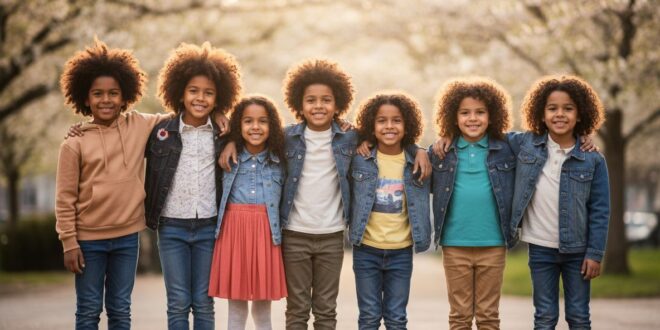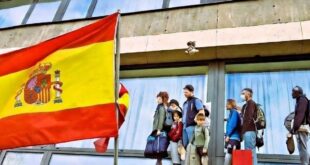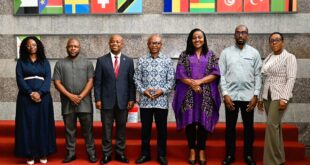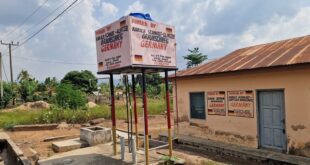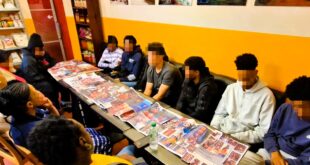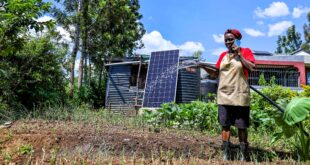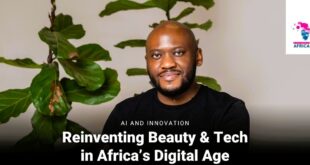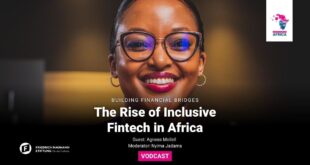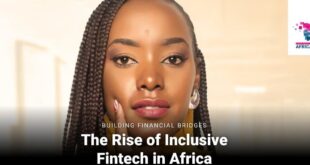In this article, Amal Abbass, discusses racism, microaggressions and language rooted in colonial history. African-European children – children with both African and European heritage – often face subtle but painful comments about their identity. These remarks may not sound openly racist. They may even come from loving family members. But they carry hidden messages that can damage a child’s confidence and sense of belonging. This article explains how such language works, why it hurts, and what parents and educators can do to protect and empower children.
![]()
Trigger Warning
This article discusses racism, colonial classification systems, anti-Blackness, colorism, and identity-based microaggressions that may be distressing for some readers.
⸻
African-European children – children with African and European heritage – navigate societies where their identity is frequently questioned or mislabeled. While many of the terms used for them may sound harmless, these expressions carry deep colonial, racial, and psychological histories. Research across identity psychology, African diaspora studies, and colonial history shows clearly that language shapes belonging and self-worth (Cross, 1991; Helms, 2020; Root, 1996).
This article explains why these labels hurt, where they come from, and what adults must change to support African-European children.
⸻
1. The Myth of “Half”: A Colonial, Racialised Grammar
Terms such as “half Somali, half German” or “half African” are not neutral. They descend from colonial and racial systems that defined people through mathematical ancestry.
1.1. Colonial caste arithmetic (1/2, 1/4, 1/8, 1/16)
European empires created fractional categories—“1/2 caste,” “1/4 caste,” “1/8 caste”—to rank mixed-ancestry populations (Stoler, 1995; Young, 1995). These were not descriptions but tools of domination.
A person’s “fraction” determined:
• access to education
• rights to property
• marriage permissions
• movement
• social status
This system constructed identity as something quantifiable, measurable and inherently unequal.
The everyday phrase “half Somali” echoes this legacy.
1.2. Mulatto: the violence inside a word
The term mulatto—widely critiqued by scholars—derives from the comparison to a mule, a sterile hybrid animal (Young, 1995). Colonial administrators used the term deliberately to mark African-European children as:
• unnatural
• inferior
• illegitimate
• biologically incorrect
Language was a weapon of dehumanisation.
⸻
2. Nazi Germany and the Continuation of Fractional Identity
Colonial arithmetic did not disappear.
The Nuremberg Laws reproduced the same logic through categories such as:
• “Volljude” (full Jew)
• “Halbjude” (half Jew)
• “Vierteljude” (quarter Jew)
These “blood fractions” determined education, employment, marriage, civil status—and ultimately, survival.
Fractional identity is historically tied to racial surveillance, segregation and genocide.
When adults today call a child “half,” they unknowingly speak the language of systems built to police and harm.
⸻
3. Colorism in Families: “You’re brown, not Black”
Many African-diasporic parents try to protect their children by softening their Black identity.
Identity psychology shows this is harmful.
Messages like “you’re brown, not Black” reinforce colonial colour hierarchies that value lighter skin (Hunter, 2007; Helms, 2020).
Studies show that children receiving these messages:
• develop weakened racial identity (Cross, 1991)
• internalise anti-Black bias (Helms, 2020)
• feel “in-between” or “not enough” (Nadal, 2011)
• distance themselves from Black communities (Root, 1996)
Colorism is not protection.
It is a form of internalised oppression.
⸻
4. Transnational Microaggressions: Muzungu, Tubab, Oyibo
African-European children also face exclusion in African contexts. Terms like:
• Muzungu (East Africa)
• Tubab (Senegal, Gambia)
• Oyibo (Nigeria)
emerged from colonial encounters where Europeans were associated with dominance and distance (Mbembe, 2001).
These labels may now be joking or casual, but for children they communicate:
• you are not really African
• you are an outsider
• you do not belong here
A double exclusion
In Europe they are “too African.”
In Africa they are “too European.”
This produces a painful identity contradiction and emotional displacement (Root, 1996).
⸻
5. Psychological Consequences: What Children Internalise
Research on multiracial identity development (Gaither, 2015; Shih & Sanchez, 2005) shows that repeated microaggressions lead children to internalise beliefs such as:
• “I belong nowhere.”
• “My identity must be justified.”
• “Part of me is wrong.”
• “I must choose between worlds.”
These dynamics are associated with long-term stress, reduced self-esteem, and identity confusion.
- This is not accidental.
- It is the legacy of systems built to divide.
⸻
6. A Better Language: African-European Identity
Decolonial scholars emphasise that identities formed across continents are complete, not fractional.
African-European identity is:
• precise
• dignifying
• non-fragmenting
• historically conscious
• aligned with global terms like African-American, Afro-Caribbean, Afro-Latinx (Gilroy, 1993; Mbembe, 2017)
It positions children as whole, not divided.
⸻
7. What Adults Must Do
Children learn belonging through the language around them.
Avoid these phrases:
• “You’re half X, half Y.”
• “You’re brown, not Black.”
• “You’re a Muzungu / Tubab / Oyibo.”
• “People like you don’t fully belong here.”
Use language that heals:
• “You are African-European—whole, not half.”
• “Being Black is beautiful and dignified.”
• “Your identity belongs to you.”
• “You don’t have to choose between sides.”
This language protects children from identity fragmentation.
⸻
8. Conclusion
Microaggressions shape children’s identities.
They echo systems that once used fractions to determine humanity.
African-European children deserve language rooted in dignity, historical awareness, and care.
Every word adults use either harms or heals.
We must choose words that make children whole.
⸻
Bibliography (APA)
AABA. (2023). Statement on Race and Racism. American Association of Biological Anthropologists.
https://physanth.org/about/position-statements/aaba-statement-race-and-racism-2023/
Cross, W. E. (1991). Shades of Black: Diversity in African-American Identity. Temple University Press.
https://tupress.temple.edu/books/shades-of-black
Eze, E. C. (1997). Postcolonial African Philosophy: A Critical Reader. MIT Press.
Click on the button to load the content from mitpress.mit.edu.
Gaither, S. E. (2015). The dynamic nature of racial and ethnic identity. Child Development, 86(3), 749–765.
Gilroy, P. (1993). The Black Atlantic: Modernity and Double Consciousness. Harvard University Press.
https://www.hup.harvard.edu/books/9780674063387/the-black-atlantic
Helms, J. E. (2020). A Race Is a Nice Thing to Have. Cognella Academic Publishing.
https://titles.cognella.com/a-race-is-a-nice-thing-to-have-9781516515737
Hunter, M. (2007). The persistent problem of colorism. Sociology Compass, 1(1), 237–254.
Lewontin, R. C. (1972). The apportionment of human diversity. In Evolutionary Biology (Vol. 6, pp. 381–398). Springer.
https://doi.org/10.1007/978-1-4684-9063-3_14
Mbembe, A. (2001). On the Postcolony. University of California Press.
Mbembe, A. (2017). Critique of Black Reason. Duke University Press.
Nadal, K. L. (2011). Microaggressions and Multiracial Individuals. Springer.
https://link.springer.com/book/10.1007/978-1-4419-9952-3
Root, M. P. P. (1996). The Multiracial Experience: Racial Borders as the New Frontier. Sage Publications.
Shih, M., & Sanchez, D. T. (2005). Multiracial identity theory. Journal of Social Issues, 61(1), 1–15.
Stoler, A. L. (1995). Race and the Education of Desire. Duke University Press.
Young, R. J. C. (1995). Colonial Desire: Hybridity in Theory, Culture and Race. Routledge.
![]()
* The author, Amal Abbass, is a transcultural sandplay therapist, social entrepreneur and co-founder of tubman.network e.V. For decades, she has been a leading advocate for equality and intersectional justice, developing creative, community-rooted initiatives that empower Black and migrant communities. Abbass’s work is grounded in deep expertise in decolonial analysis, systemic critique and anti-racist psychopedagogy. She also integrates diaspora theory into her practice, enriching her therapeutic and social-impact work with global, historically informed perspectives.
 THE AFRICAN COURIER. Reporting Africa and its Diaspora! The African Courier is an international magazine published in Germany to report on Africa and the Diaspora African experience. The first issue of the bimonthly magazine appeared on the newsstands on 15 February 1998. The African Courier is a communication forum for European-African political, economic and cultural exchanges, and a voice for Africa in Europe.
THE AFRICAN COURIER. Reporting Africa and its Diaspora! The African Courier is an international magazine published in Germany to report on Africa and the Diaspora African experience. The first issue of the bimonthly magazine appeared on the newsstands on 15 February 1998. The African Courier is a communication forum for European-African political, economic and cultural exchanges, and a voice for Africa in Europe.

